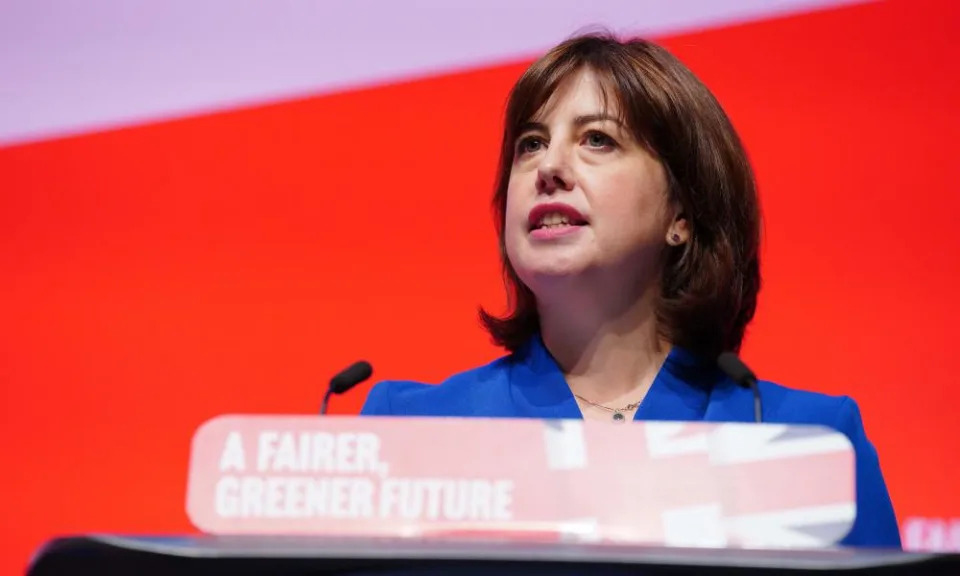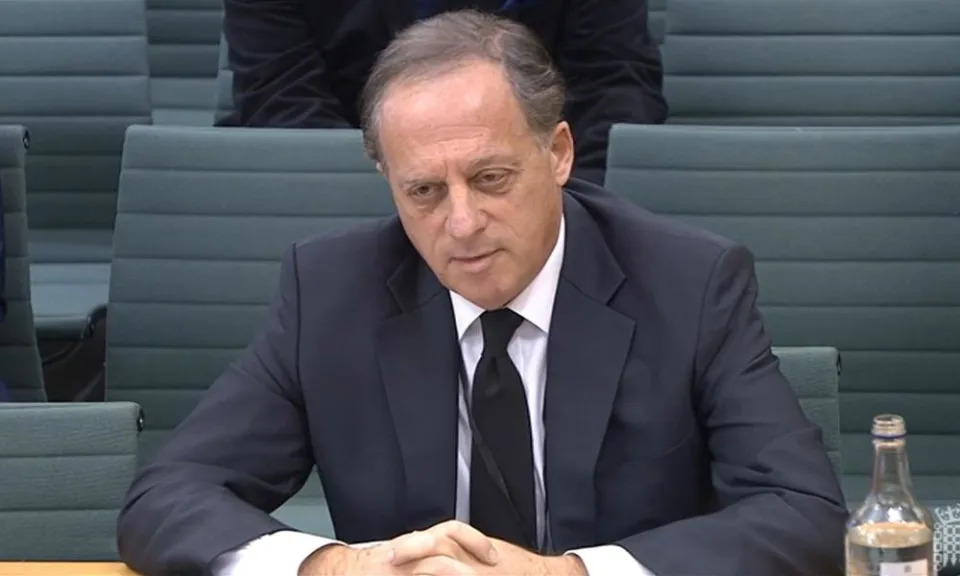Toby Helm, Political Editor
Sun, 26 March 2023

Photograph: Peter Byrne/PA
A root and branch review of the BBC’s operations – including how its chairman and board are appointed – was announced on Sunday by Labour amid growing doubts about the corporation’s political independence under the Tories, and its future as a public service broadcaster.
The move follows bruising rows over Gary Lineker’s suspension from Match of the Day for criticising language used by ministers to describe immigration policy, and the appointment by former prime minister Boris Johnson of Conservative donor and supporter Richard Sharp as the BBC’s chairman.
In recent weeks there have also been reports of the BBC having come under pressure from the government to change its coverage of Brexit and the Covid-19 pandemic for political reasons.
Labour’s BBC review panel, made up of leading media and business figures, will meet for the first time this week. It is being set up by Lucy Powell, the shadow culture secretary, who said the appointment of Sharp after he had helped Johnson secure an £800,000 loan, epitomised the lack of transparency and “revolving door” culture between government and corporation that had damaged the BBC’s reputation.
“The whole appointment of Sharp stank,” she said. “We need to cherish the BBC as a great national institution at the heart of British life and that involves looking at how we secure its reputation for independence from government and its place in a rapidly changing global media landscape.”

BBC chairman Richard Sharp is questioned by MPs about how he helped Boris Johnson secure a loan. Photograph: House of Commons/PA
She added: “There are serious headwinds. The media climate is changing, with competition from online streaming giants, the switch to digital over linear TV, rising costs and stalled progress on prominence. The BBC consistently finds itself at the centre of culture wars and questions over its impartiality and independence. Continuing the status quo is not an option.”
While Rishi Sunak’s government has toned down the hostile attitude adopted by Boris Johnson’s culture secretary, Nadine Dorries, who seemed intent on scrapping the licence fee altogether, many Tories still see the corporation as having an ingrained leftwing bias that needs to be erased by radical reform. Labour, by contrast, wants to position itself as a supporter of the best traditions of the BBC and its role at home and overseas, while also being open to change, including about the precise form the licence fee should take.
The Labour panel includes TV producer Steve Morrison, a former Granada TV director of programmes and chief executive who has had roles in the BBC; James Purnell, a former BBC director of strategy and culture secretary under Labour; TV presenter June Sarpong, who was formerly the BBC’s first director of creative diversity, and Lou Cordwell, chair of the Greater Manchester Local Enterprise Partnership, who worked with the BBC on a range of high-profile digital projects.
Labour’s move to highlight the importance of the BBC to the country and its image abroad reflects its determination to stress patriotic themes in the run-up to the next general election. It is also keen to play up the growing impression of Tory influence over the BBC before an election in which it fears an onslaught by rightwing sections of the media, such as the Daily Mail and Daily Telegraph, and will need to rely on the BBC for impartiality.
The panel’s terms of reference will include how to prepare for the BBC’s next charter renewal in 2027; future funding, including the licence fee and what services the BBC would provide from it; independence and impartiality; and how the BBC can compete and thrive in the digital age.
Related: Stop kicking the BBC on bias. A right turn was needed, but now it’s gone too far | Roger Harrabin
Labour has been planning the review for months as major decisions on funding and the charter approach. But the BBC’s role has come into the political spotlight following explosive claims last year by the former presenter Emily Maitlis that a Tory “agent” was “acting as the arbiter of BBC impartiality” from his seat on the corporation’s board. Although Maitlis did not name him, she was referring to Theresa May’s former director of communications, Robbie Gibb, who has denied the claims. Gibb is one of four BBC board members whose posts are in the gift of the government.
Sharp is now the subject of two separate investigations. The appointment is being probed by an “independent person” after William Shawcross, the commissioner for public appointments, recused himself for having met Sharp previously, and the BBC itself is investigating whether there has been any breach of its conflict of interest rules since he joined the corporation.
Last month the Commons digital, culture, media and sport committee criticised Sharp for omitting details about his involvement in connecting the Cabinet Office with a businessman interested in offering Johnson financial assistance when he was applying for the post of BBC chairman. It said such omissions “constitute a breach of the standards expected of individuals” applying for prominent public appointments. A spokesman for Sharp expressed regret that he had not made information available to the MPs who vetted his appointment.
Labour says it is committed to retaining the BBC as a universal, publicly owned, publicly funded public service broadcaster.
A BBC spokesperson said: “The BBC plays an important part in national life and we look forward to engaging with the review.”
• This article was amended on 26 March 2023 to add a statement from the BBC received after publication.
































 CNBCTV18
CNBCTV18


